TEL AVIV: Israel’s opposition leader moved closer to unseating Prime Minister Benjamin Netanyahu when he officially told the country’s president that he has reached agreements with political allies to form a new government.
About 35 minutes before a Wednesday midnight deadline, the centrist Yair Lapid told President Reuven Rivlin in an email: “I am honored to inform you that I have succeeded in forming a government.”
Rivlin, attending Israel’s soccer cup final at the time, congratulated Lapid by phone, according to his office.
Lapid’s main partner is nationalist Naftali Bennett, who would serve as prime minister first under a rotation between the two men. Lapid, 57, a former TV host and finance minister, would take over after about two years.
Their coalition government would comprise a patchwork of small and medium parties from across the political spectrum, including for the first time in Israel’s history a party that represents Israel’s 21 percent Arab minority — the United Arab List.
It would also include Bennett’s Yamina (Rightward), center-left Blue and White, headed by Defense Minister Benny Gantz, the left-wing Meretz and Labour parties, former defense minister Avigdor Lieberman’s nationalist Yisrael Beitenu party and New Hope, a right-wing party headed by former education minister Gideon Saar, who broke away from Netanyahu’s Likud.
But the fragile new government, which would command a razor-thin majority in parliament, was only expected to be sworn in about 10-12 days from now, leaving slight room for Netanyahu’s camp to try and abort it by turning lawmakers over to their side and vote against it.
Israeli political analysts widely expected Netanyahu to try every possible political maneuver to make this happen, seizing upon Yamina members who are unhappy about joining forces with Arab and leftist lawmakers.
“Calm down. Netanyahu’s still prime minister for a few more days until the confidence vote and he’s going to fight every inch of the way to deny the new government its wafer-thin majority. This is still very far from over,” Anshel Pfeffer, political analyst for the liberal Haaretz newspaper, wrote on Twitter.
Netanyahu, who has yet to respond to Lapid’s announcement, controls 30 seats in the 120-member Knesset, almost twice as many as Lapid’s Yesh Atid party, and he is allied with at least three other religious and nationalist parties.
During a 12-year run in top office, Israel’s longest serving leader has been an often polarizing figure at home and abroad.
Netanyahu, 71, has sought to discredit the Bennett-Lapid alliance, saying it would endanger Israel’s security — an allusion to efforts to curb Iran’s nuclear program and manage ever-fraught Palestinian ties.
Lapid, a centrist, was given the task of forming a governing coalition after right-wing Netanyahu failed to do so in the wake of a March 23 election. He campaigned under a pledge to “return sanity” to Israel, focusing on Netanyahu’s corruption trial on charges which he denies.
“This government will work for all Israel’s citizens, those who voted for it and those who did not. It will respect its opponents and do all it can to unites and connect all parts of Israeli society,” Lapid said on Twitter.
The new government, if it is sworn in, will face considerable diplomatic, security and economic challenges: Iran, the moribund peace process with the Palestinians, a war crimes probe by the International Criminal Court and economic recovery following the coronavirus pandemic.
A source involved in the coalition talks said the proposed new government would try to retain consensus by avoiding hot-button ideological issues such as whether to annex or cede occupied West Bank territory that Palestinians want for a state.
Bennett has said that both sides would have to compromise on such ideological issues in order to get the country back on track, with government debt at 72.4 percent in 2020, up from 60 percent in 2019 and the deficit jumping to 11.6 percent in 2020 from 3.7 percent in 2019.
“This is a night of great hope,” Gantz, who will remain in office under the coalition agreements, said on Twitter as he set out on a trip to Washington in the aftermath of 11 days of fierce fighting with militants in Gaza last month and as world powers press on in reviving a nuclear deal with Iran.
An end to Netanyahu’s tenure may bring reprieve from unprecedented domestic political turmoil, Israel has held four elections in two years — but major shifts in Israel’s foreign policy appear less likely.
After Lapid’s announcement, a few dozen activists from the protest movement against Netanyahu broke out in cheers. “He’s finished, he’s finished, yalla Bibi, go,” they chanted outside a bar in Tel Aviv, referring to Netanyahu by his nickname.
“We’re hopeful for this change for a better future for this wonderful state,” said 27-year-old student Eran Margalit.
Israel’s opposition declares new government, set to unseat Netanyahu
https://arab.news/bwpa9
Israel’s opposition declares new government, set to unseat Netanyahu
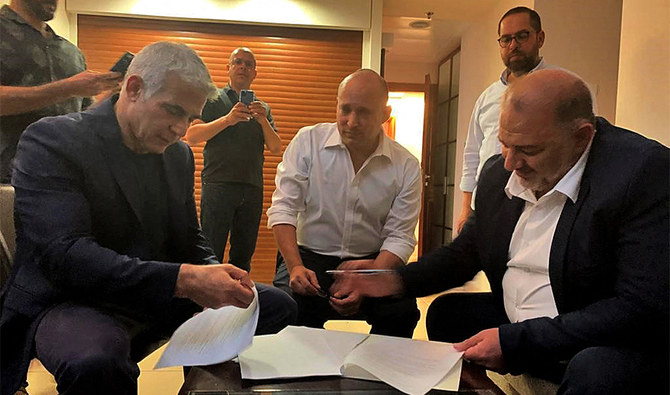
- Israeli opposition leader officially tells country’s president he has reached agreements with political allies to form new government
- Yair Lapid’s main partner is nationalist Naftali Bennett who would serve as prime minister first under a rotation between the two men
Iran to send experts to ally Venezuela to help with medical accelerators

- “Venezuela has a number of accelerators in its hospitals that have been stopped due to the embargo,” the message said
CARACAS: Iran on Saturday said it will send experts to its ally Venezuela to help with medical accelerators in hospitals it said had been stopped due to Western sanctions.
Venezuela requested Iran’s help, according to a message on the social media platform X by the Iranian government attributed to the head of the Atomic Energy Organization of Iran.
“Venezuela has a number of accelerators in its hospitals that have been stopped due to the embargo,” the message said.
Medical accelerators are used in radiation treatments for cancer patients.
Venezuela is also an ally of Russia and China.
The return of US sanctions on Venezuela’s oil industry has made its alliance with Iran critical to keeping its lagging energy sector afloat. Washington last year temporarily relaxed sanctions on Venezuela’s promise to allow a competitive presidential election. The US now says only some conditions were met.
Three Syrians missing after cargo ship sinks off Romania

- Eight sailors were rescued by one of the nearby commercial vessels, while the search for the other three, “all of Syrian nationality,” was continuing, the statement said
BUCHAREST: Romanian rescue teams on Saturday were scouring the Black Sea for three Syrian sailors who went missing when their cargo ship sank off the coast, the naval authority said.
The Mohammed Z sank with 11 crew on board, 26 nautical miles off the Romanian town of Sfantu Gheorghe in the Danube delta in the Black Sea on Saturday morning, officials said in a statement.
The ship sailing under the Tanzanian flag was carrying nine Syrian and two Egyptian nationals, it said.
After receiving an alert at “around 4:00am,” naval authorities and border police were dispatched, with two nearby commercial vessels also joining the search and rescue operation.
Eight sailors were rescued by one of the nearby commercial vessels, while the search for the other three, “all of Syrian nationality,” was continuing, the statement said.
The cause of the accident was unclear.
According to the specialist website Marine Traffic, the ship departed from the Turkish port of Mersin and was heading to the Romanian port of Sulina.
Since the start of Russia’s war in Ukraine, drifting sea mines have posed a constant threat for ships in the Black Sea, with countries bordering it doubling down on demining efforts.
Ensuring safe passage through the Black Sea has gained particular importance since Romania’s Danube ports became hubs for the transit of grain following the Russian blockade of Ukraine’s ports.
Iraq parliament fails to elect a speaker

- A coalition of three Sunni blocs backed Issawi, while Mashhadani, who served as Iraq’s first speaker following the adoption of the 2005 constitution, received the support of the former speaker Mohamed Al-Halbussi’s sizeable bloc
BAGHDAD: Iraq’s lawmakers failed to elect a speaker on Saturday as neither of the two main candidates secured a majority during a tense session of parliament.
It is the latest in a series of failed attempts to replace the former head of parliament who was dismissed in November, with political bickering and divisions between key Sunni parties derailing every attempt so far.
Saturday’s vote was the closest yet to selecting a new head of the 329-member parliament, with 311 lawmakers showing up for the session and the leading candidate falling just seven votes short.
The parliament’s media office announced that 137 lawmakers chose Mahmoud Al-Mashhadani, the oldest MP, while 158 picked Salem Al-Issawi.
However, candidates require at least 165 votes to win.
Many lawmakers did not return for a second attempt on Saturday, with local media sharing videos of a brief brawl between MPs and reporting that at least one of them was injured.
The parliament’s media office then announced that the session had been adjourned.
Iraq, a mosaic of different ethnic and religious groups, is governed by complex power-sharing arrangements.
The largely ceremonial role of president traditionally goes to a Kurd, that of prime minister to a Shiite, while the speaker of parliament is usually Sunni.
But parliament is dominated by a coalition of pro-Iran Shiite parties, reflecting the country’s largest religious group.
A coalition of three Sunni blocs backed Issawi, while Mashhadani, who served as Iraq’s first speaker following the adoption of the 2005 constitution, received the support of the former speaker Mohamed Al-Halbussi’s sizeable bloc.
The new speaker will replace Halbussi, the influential politician dismissed by Iraq’s top court in November last year after a lawmaker accused him of forging a resignation letter.
Halbussi had been the country’s highest-ranking Sunni official since he first became a speaker in 2018.
The new speaker’s stint will not last long with the general election due in 2025.
Libyan armed groups clash near capital Tripoli

- Libya is divided between the UN-recognized Tripoli-based government and a rival administration in the country’s east
TRIPOLI: Clashes between Libyan armed groups broke out on Friday night in the city of Zawiya, some 40 kilometers west of the capital Tripoli, a security official told AFP.
An official at the city’s security directorate told AFP the clashes were ongoing but “intermittent” on Saturday.
“The southern areas of the city of Zawiya have been witnessing clashes between armed groups since last night,” the official said.
Libya is still struggling to recover from years of war and chaos after the 2011 overthrow of longtime dictator Muammar Qaddafi.
On Saturday morning, schools in Zawiya were suspended as some roads leading to the city were shut down amid a “casual” exchange of fire between the groups, the official said.
Media reports said the fighting left casualties, but authorities in Tripoli have yet to confirm any.
The Tripoli-based health ministry said in a statement it was working to evacuate parts of the city and taking injured people to hospitals.
The Libyan Red Crescent said it had evacuated some families from areas affected by the fights.
Authorities have not disclosed the reasons behind the fight.
Videos shared since Friday night on social media, which AFP could not verify, showed armed men in SUVs firing heavily at other armed groups.
Other videos showed smoke rising from parts of the city.
Although relative calm has returned to the oil-rich country in the past few years, clashes periodically occur between its myriad armed groups.
Last month, clashes broke out in the capital Tripoli, sparking panic among locals who were celebrating the end of the Muslim fasting month of Ramadan.
In August 2023, Tripoli’s worst armed clashes in a year left 55 people dead when two powerful groups fought.
Libya is divided between the UN-recognized Tripoli-based government and a rival administration in the country’s east.
How women and girls in war-torn Gaza are coping with water, sanitation and hygiene collapse

- UN Women has described ongoing Israel offensive as a “war on women” with at least 10,000 female deaths since last October
- Deprived of access to adequate services, more than 1 million women and girls face daily challenges and serious health risks
LONDON: Deprived of adequate access to water, sanitation, and hygiene services, Palestinian women and girls in Gaza are bearing the brunt of the prolonged and deepening humanitarian emergency caused Israel’s ongoing military offensive.
With no resolution to the conflict between Israel and Hamas in sight, more than a million displaced women and girls in the embattled Palestinian enclave continue to endure daily challenges in increasingly dire conditions.
UN Women has described the Israeli military operation in Gaza, which began in the wake of the Oct. 7 Hamas-led attack on southern Israel, as a “war on women,” with at least 10,000 killed since the start of the conflict — among them more than 6,000 mothers.
Those figures, published in April, are now likely far higher as Israel expands its operation and bombing raids into eastern Rafah — Gaza’s southernmost city, now home to some 1.4 million displaced Palestinians.

According to UN figures, this latest operation has forced an estimated 150,000 Palestinians to flee central and northern Rafah.
While the biggest risk to women and girls in Gaza is injury or death under Israeli bombardment, “the unhygienic conditions and lack of water in Gaza are also having a very negative impact on women and girls’ health and dignity,” Fikr Shalltoot, the Gaza programs director at Medical Aid for Palestinians, told Arab News.
Israel denies deliberately targeting civilian infrastructure, accusing Hamas of using residential areas for cover.
As summer approaches, soaring temperatures worsen the spread of communicable diseases caused by a lack of hygiene facilities, water, and access to proper food. The heat itself is also a significant danger to children and the elderly.
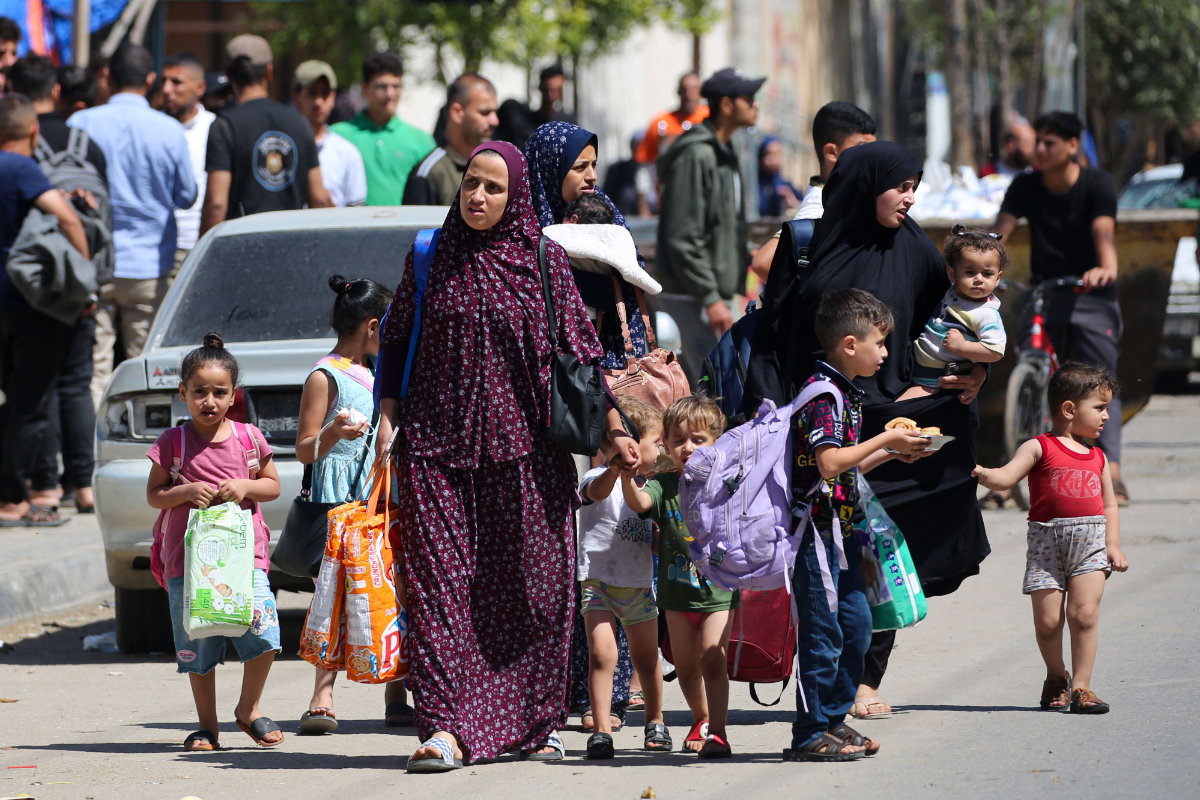
“During a recent heatwave, a 5-year-old girl tragically died in her tent due to extreme heat,” Shalltoot said.
Analysis of satellite imagery by BBC Verify found that the Israeli operation in Gaza has damaged or destroyed more than half (53 percent) of the territory’s vital water and sanitation facilities.
The analysis, based on images acquired in March and April, also confirmed that four of the six wastewater treatment plants in Gaza have been damaged or destroyed. These facilities were critical to preventing sewage buildup.
Fidaa Al-Araj, Oxfam’s food security, cash, and protection coordinator in Gaza, said the water, sanitation, and hygiene situation facing women and girls in the enclave was “challenging,” leaving them unable to access clean toilets or private shower spaces.
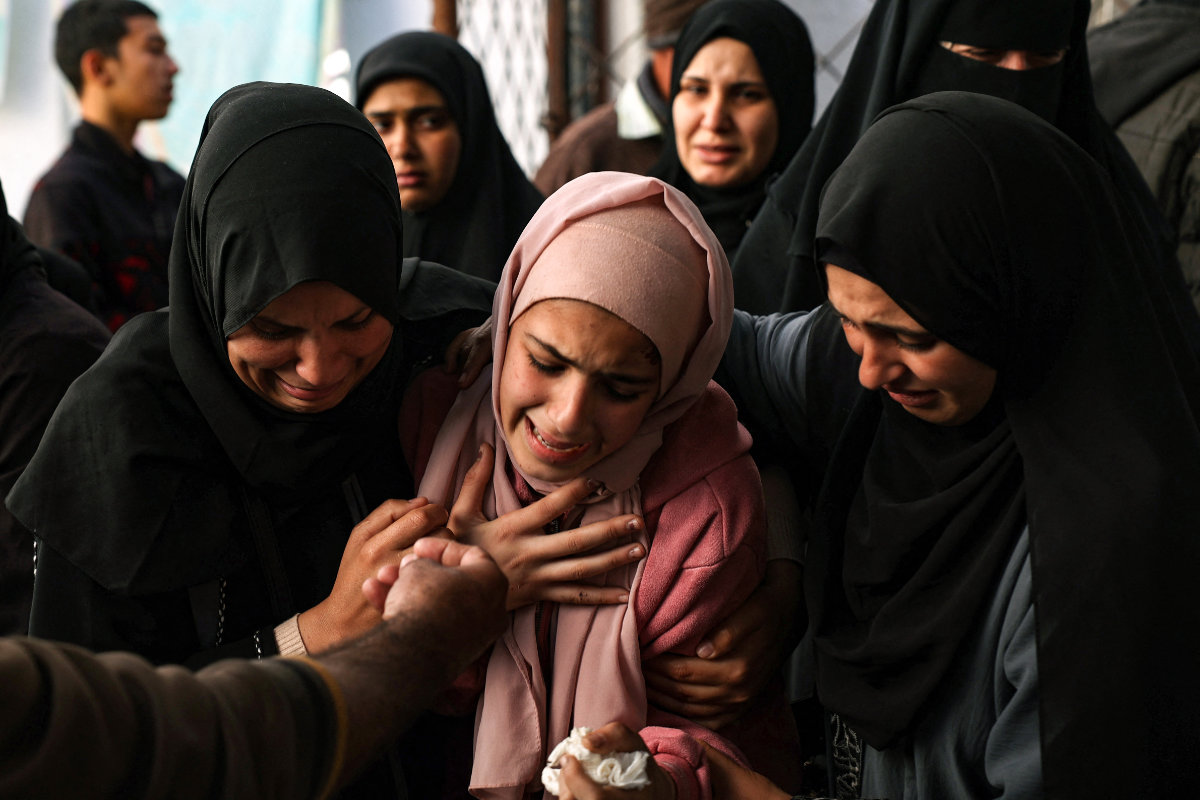
“Having been displaced into camps or even in a host community, the numbers of people, of internally displaced persons, are very, very high,” Al-Araj told Arab News. “So, there is (overcrowding), there are many difficulties in having access to toilets, bathrooms, showers.”
She added: “Even if you have the facilities, and even if by any stretch they are enough for the IDPs residing in any given space, there is the issue of lack of running water to supply those facilities and to have them up and running all the time.
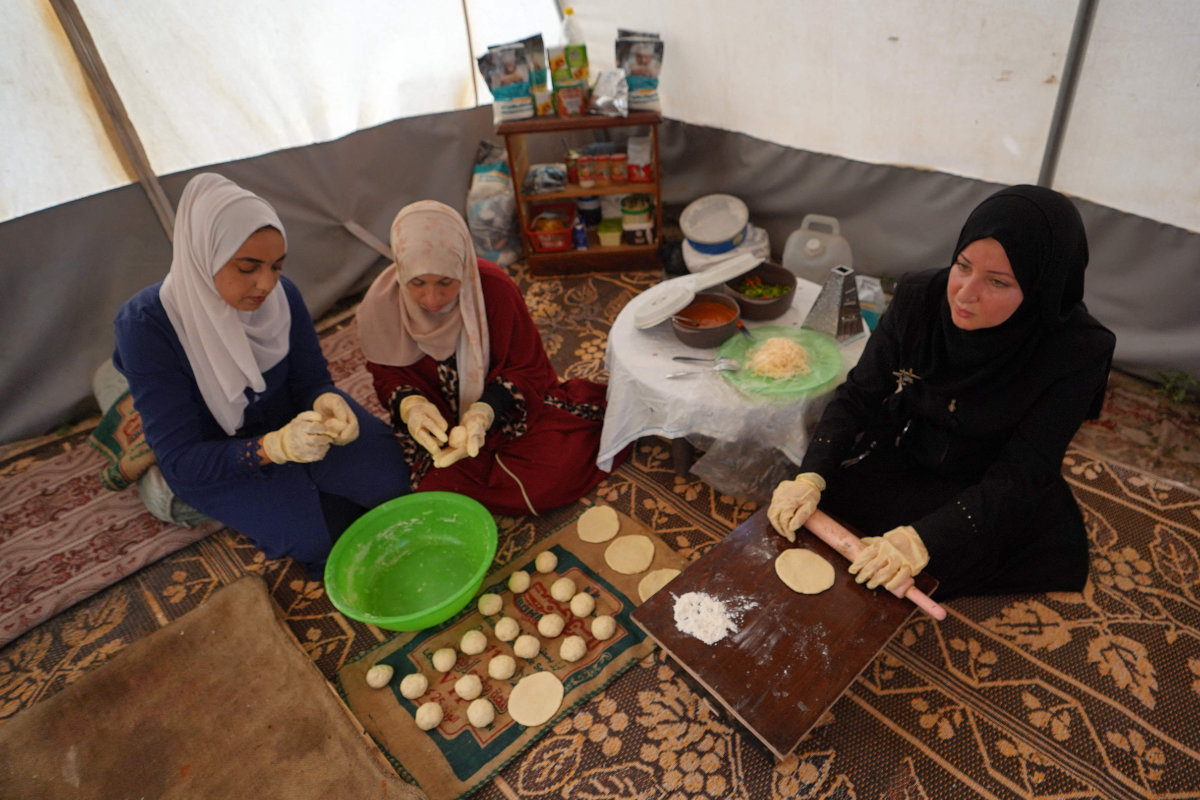
“So, the hygiene conditions are very compromised, to say the least. When it comes to women and girls, there are issues of privacy, which is completely lacking.”
Where washrooms are present, people have “to wait in line with all sorts of people, even strangers, men and women, just to use the toilet. You have people banging on the door of the toilet while you’re in there, asking you to hurry up because the line is still very long.”
INNUMBERS
• 700,000 Women and girls now hosted in Rafah who have nowhere else to go.
• 93% Women surveyed who feel unsafe in their own homes or in displacement.
• 6/10 Women who reported complications in pregnancy since Oct. 7.
Source: UN Women
This also makes management of menstruation especially challenging, as women and girls “endure longer hours without changing a pad, without washing,” Al-Araj added.
According to UN figures, there are more than 690,000 menstruating women and adolescent girls in the Gaza Strip. But aid agencies, which have had very limited access to the enclave due to the Israeli blockade, have been unable to meet the high demand for hygiene kits.
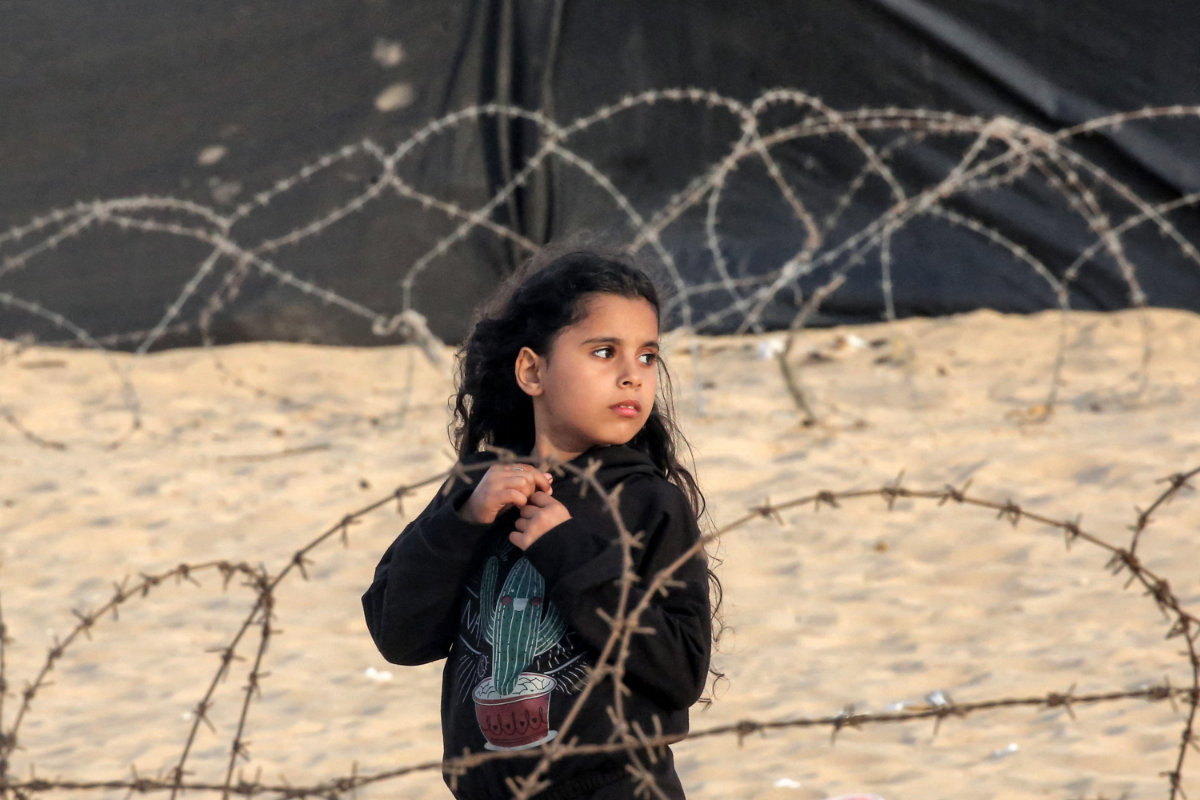
And since Israel took control of the Palestinian side of the Rafah border crossing on May 7 and closed the nearby Kerem Shalom crossing, the already limited flow of commercial goods and humanitarian aid has been further strangulated.
MAP’s Shalltoot confirmed that women’s sanitary products were “scarce in the local market,” highlighting that this has had “a psychological and physical health impact on women and girls.”
She said: “They resort to homemade, makeshift alternatives, which negatively impact their health by putting them at risk of reproductive and urinary tract infections and protection-related risks.
“This also negatively impacts their psychological well-being, anxiety and insecurity.”
Even the simple act of taking a shower has been almost impossible for women in Gaza for several months.
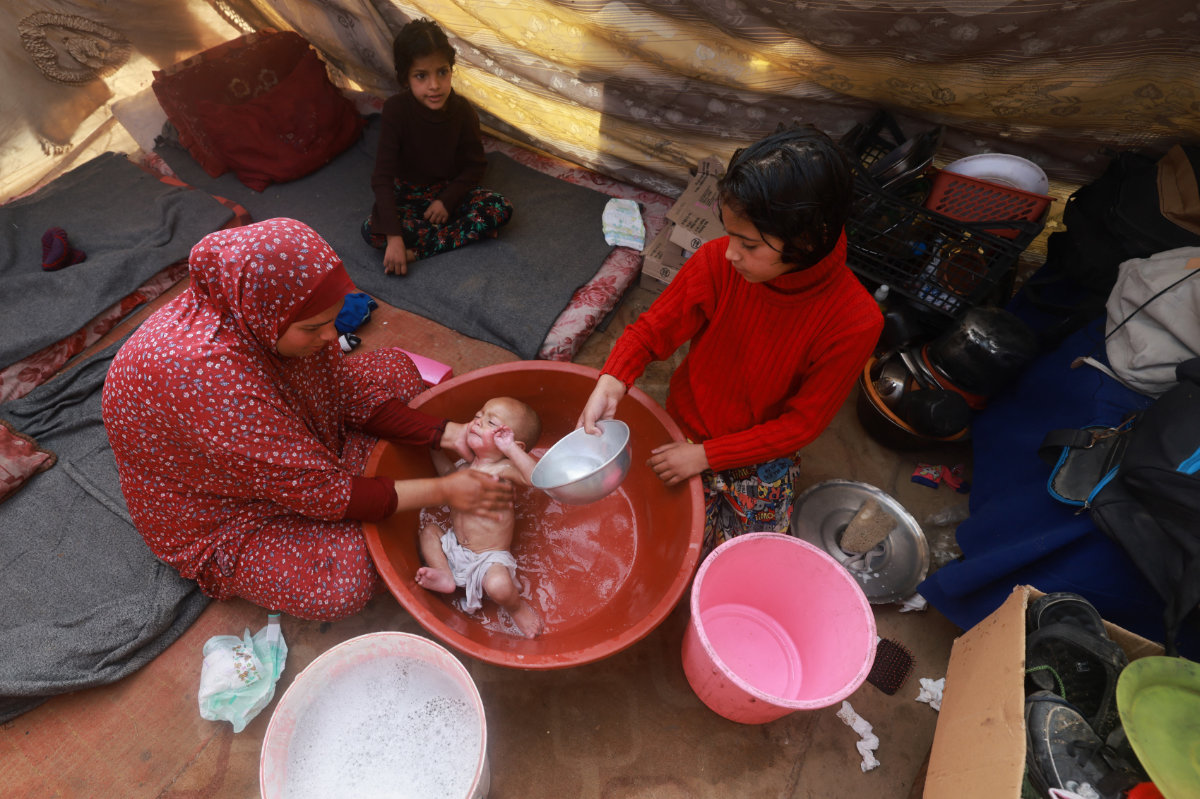
“It’s very difficult to find a spot designated to take showers, and if it’s there, it’s very difficult to have water,” Oxfam’s Al-Araj said. “And if the water is there, it’s very difficult to find time to take an adequate shower.”
She added: “As a woman and as a mother of girls, I’ve been through all of this. To overcome these circumstances, you space out the shower times, so you take a shower when it’s absolutely needed.
“Sometimes you could spend a couple of weeks or even more without taking a shower.”
The aid agency Medecins Sans Frontieres told the BBC that the destruction of water, sanitation and hygiene facilities has led to “disastrous health consequences for the population,” notably a significant rise in gastric complaints in Rafah.
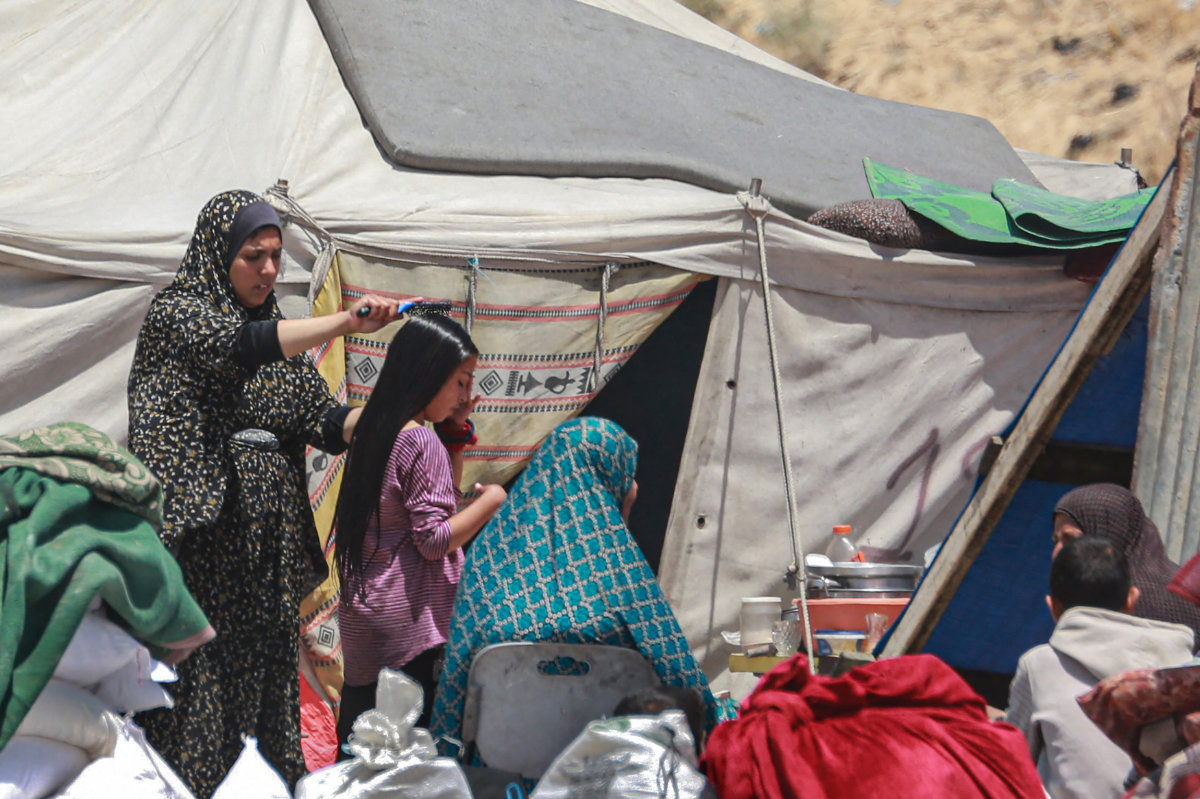
Contaminated water has also led to a spike in hepatitis A cases, with women and girls facing a heightened risk of exposure to the disease due to their traditional domestic responsibilities and caring for the sick, according to UN Women’s April gender alert report.
The report, titled “Scarcity and Fear,” highlighted that the lack of adequate and dignified facilities also exposes women and girls to reproductive and urinary tract infections.
“This situation could develop into dangerous or concerning health conditions for the women and girls, and I’m really sorry to say that it’s not given priority,” said Al-Araj.
“The heightening demand on the time, resources, and capacity of the medical facilities and staff makes prioritizing women’s issues or girls’ issues very difficult.”
Moreover, there are no quick fixes. Even if sufficient aid is permitted to enter Gaza, facilities need to be carefully planned in order to meet the necessary standards of privacy, cleanliness, and safety.
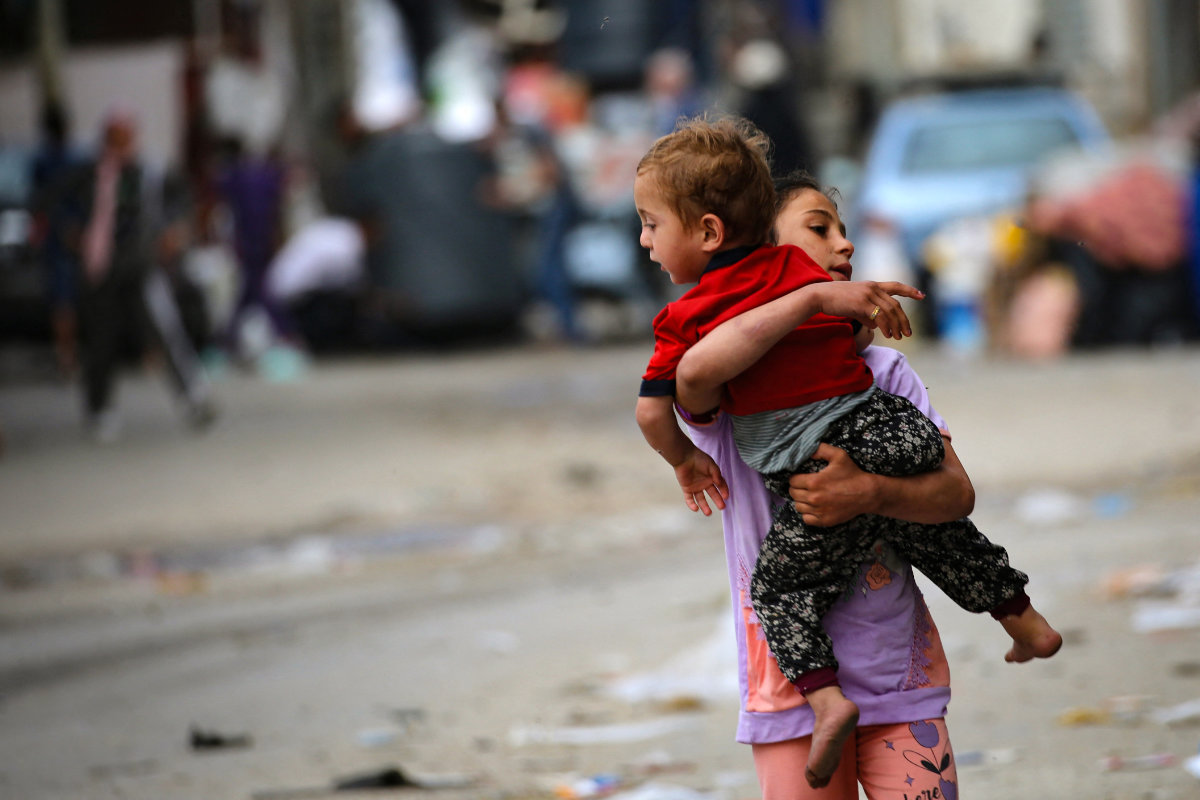
“It’s not enough to build a shower or a toilet,” said Al-Araj. “It’s not enough to provide it with water and that’s it. You have to think of the site … Is it safe for women and girls, is it accessible at all times … is it targeted maybe by different threats?
“You also have to think about the supplies. You don’t give a hygiene kit or a dignity kit once, for example, and that’s it, your work is done. You need to regularly provide those kinds of kits.”
Al-Araj also emphasized the need for “complementary services,” including extending responses “to enhancing access to sexual and reproductive health care system.
“I can only wish that the aftereffects of all of this wouldn’t linger for long or have irreversible results.”





















